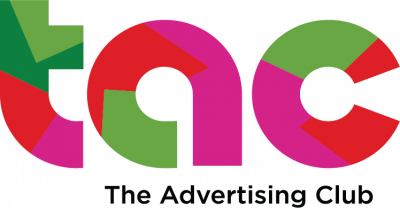The Dilli Dil Se network which was promoted largely during the IPL was a part of the Coca-Cola marketing programme, celebrating the Delhi Daredevils. Dilli Dil Se is also India’s first-ever network of multimedia, broadband-enabled entertainment kiosks.
The Dilli Dil Se kiosk network was conceived and developed by multimedia producer, Raja Choudhury and his digital agency, C3CUBE Multimedia, for Coca-Cola India, as part of the latter’s integrated marketing programme to leverage its sponsorship of the Delhi Daredevils during the DLF IPL 2009. This programme also included a website, www.DilliDilSe.com, designed by C3CUBE.
Traditionally, touch-screen kiosks are utilised in banks and at airports, stations and museums, in order to facilitate customer transactions, information or ticketing. The Dilli Dil Se kiosk network, however, was created solely for the purpose of promoting a sporting event and providing entertainment in a safe, fun-filled environment. During the DLF IPL 2009, enthusiastic users between the ages of 13 and 30 logged on to the network to cheer and celebrate the Delhi Daredevils’ steady climb to the top of the league table, and into the semi-finals.
The idea for this kiosk was conceived by C3CUBE and taken to Coca-Cola India. The cutting-edge kiosk network integrates a large 19-inch letterbox touch-screen interface and a 32-inch LCD TV. It provides dynamic content such as a promotion, games, a private social network, video mail, SMS tweets, a jukebox, Bluetooth 2.0 downloads, videos, ads, team player game cards, 3D virtual tours and much more, along with prominent Coca-Cola branding. Through this kiosk, the company aimed at creating a fun, exciting environment, with information and statistics on players, a 3D virtual map and guide of Feroz Shah Kotla Stadium, a game on Gautam Gambhir, and so on.
“This is a first-of-its-kind entertainment kiosk network, we believe such a network that integrates Web 2.0, Flash games, a social network, Bluetooth, video mail, SMS and music over a 2 Mbps broadband connection, has not been deployed in India so far. Coca-Cola India believed in our vision and we were able to make this possible during the IPL.” says Raja Choudhury, founder and president, C3CUBE. He has been building successful kiosks, websites, videos and TV programmes in the US, UK and Indian markets since 1993. “”
Mansoor Siddiqi, director, integrated marketing communications, Coca-Cola India, said, “The Dilli Dil Se kiosk network was a fresh initiative in the marketing of a brand asset. It enabled local Delhi Daredevils fans to cheer their team on, in an involving and fun manner, and achieved engagement metrics beyond our expectations.”
Twenty-seven such kiosks were installed all over Delhi, Noida and Gurgaon at various locations such as McDonald’s, DT Malls, Nirula’s, Pind Baluchi, Tonic, Waves Cinema, INOX Cinema and Rockman Beer Island. Over 20,000 users registered at these kiosks, with an average of 465 persons per day. The total hits on weekends were 18,520. The average duration of a visit was about 12 minutes and the most popular feature was the Gauti Game, which received 53 per cent of the total previews.
C3CUBE has already won accolades for its work, including two Webby Honoree Awards in 2008 for www.OurWeddingDay.com and www.CBCWorldwide.com, as well as awards for www.JadeNYC.com and the documentary film, Spirituality in the Modern World. The company now plans to launch a series of public multimedia projects in the Indian market, including a new tourism, information and entertainment kiosk network for Delhi, called the Delhi I-Zone, in time for the Commonwealth Games in 2010.
The company was unwilling to reveal costs involved in setting up such kiosks for brands, but feels that the kiosk is a great marketing tool to create brand awareness. Moreover, in this age of digital media, the broadband-enabled kiosk can help in providing information about new products, services, events, and promotions in a more dynamic and exciting way. The kiosk helps in transforming a brand’s image into a more personalised and modern one. The company is positive that after the success of the Dilli Dil Se project, more brands will take to this system.
